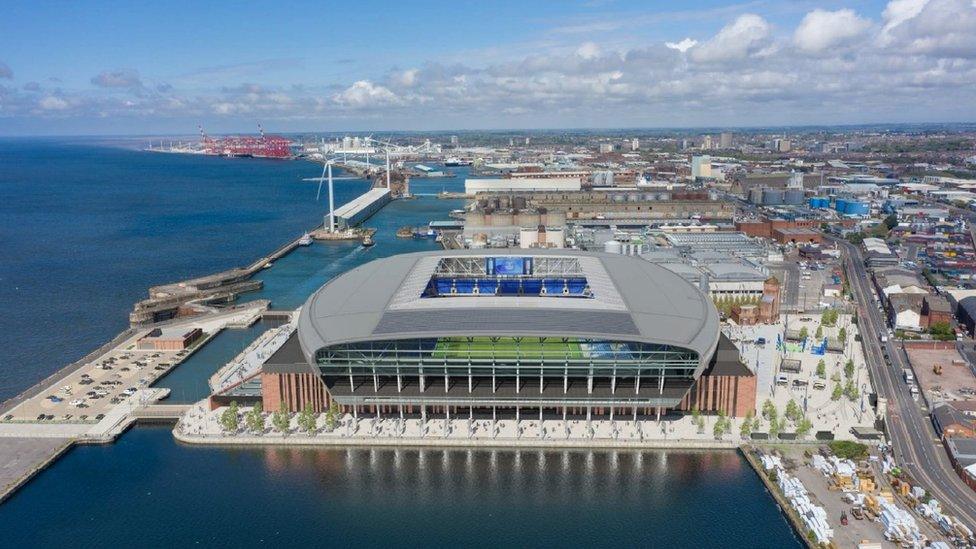Unesco proposal to remove Liverpool's World Heritage status 'painful'
- Published
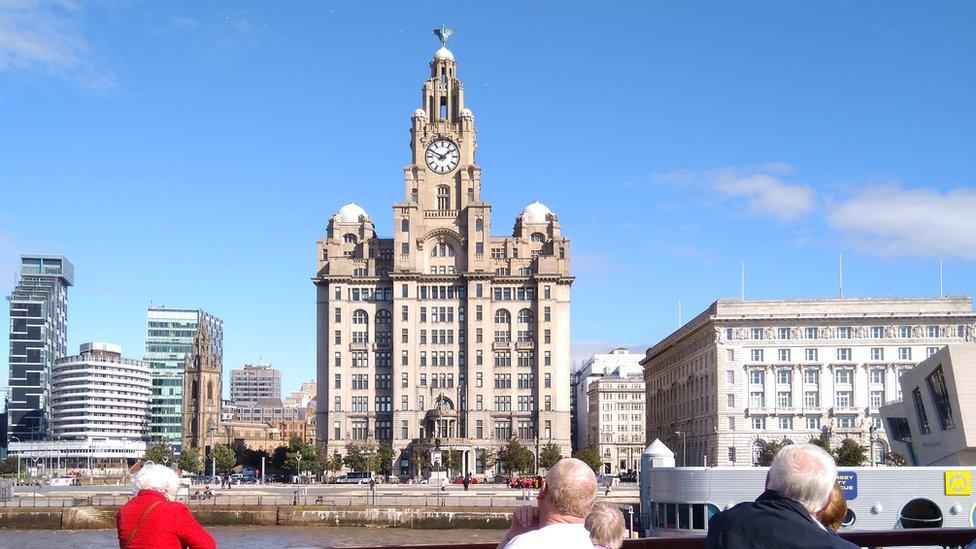
Liverpool received World Heritage status in 2004
The decision to recommend removing Liverpool's World Heritage status was "painful", a Unesco director has said.
But Dr Mechtild Rossler said the city had been warned of its potential deletion from the list for many years.
Liverpool will be the third site to lose its World Heritage status since the list began in 1978 if the decision is backed next month.
Dr Rossler said the committee would not have made the recommendation if the damage had not already been done.
"I think it is very painful if a site is listed for removal from the World Heritage List," she said.
"We can only propose delisting if you have an analysis that states that the outstanding universal value of the site is lost and that is our analysis."
Liverpool was given World Heritage status from the international cultural organisation in 2004.
It recognised the city's history as a major trading centre during the British Empire and its architectural landmarks.
The new report by the World Heritage Committee, external said new developments in the city had resulted in "serious deterioration and irreversible loss of attributes".
It cited the Liverpool Waters project and the approved plans for Everton FC's new stadium at Bramley Moore Dock.
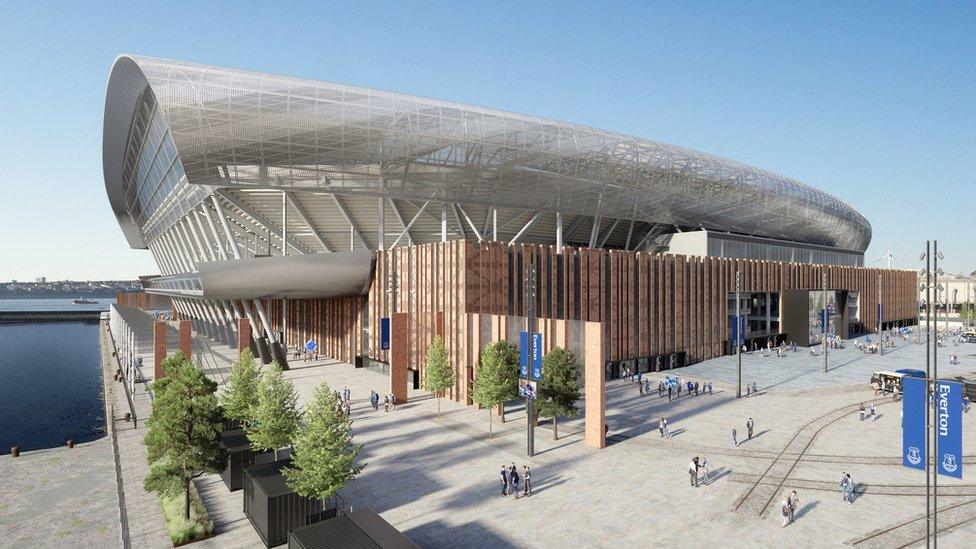
An artist's impression of Everton's new stadium, which is being built at Bramley Moore Dock
Since the World Heritage List was launched, only two sites have been removed - the Arabian Oryx Sanctuary in Oman in 2007 and Dresden Elbe Valley in Germany in 2009.
"I think in each case when you have a site with World Heritage status, it should do everything in their power to maintain a site on the World Heritage List," Dr Rossler said.
"In this case we have alerted the authorities and state party already for a number of years that they are moving towards potential deletion."
'Tremendous blow'
Liverpool City Region metro mayor Steve Rotheram said city leaders had asked Unesco to pause and give them a year to come back with revised proposals to show there was no "real danger" to the world heritage site.
"The Liverpool city region, and certainly this part of the centre of Liverpool, is in dire need of regeneration but it can be heritage-led and we can have development that's in keeping with what we want to take the whole area forward," he added.
Lord Mike Storey, who was the Lib Dem leader of Liverpool City Council when the city was granted World Heritage status, said it would be a "tremendous blow".
"This recognition of Liverpool's enormous historical significance brings in hundreds of millions of pounds to the city and city's region's economy and brings in thousands upon thousands of tourists so it's really important," he said.
Nearly 30 figures from politics, football and academia signed a letter, published in The Times on Saturday, urging Unesco not to strip the city of the status.

Liverpool's heritage
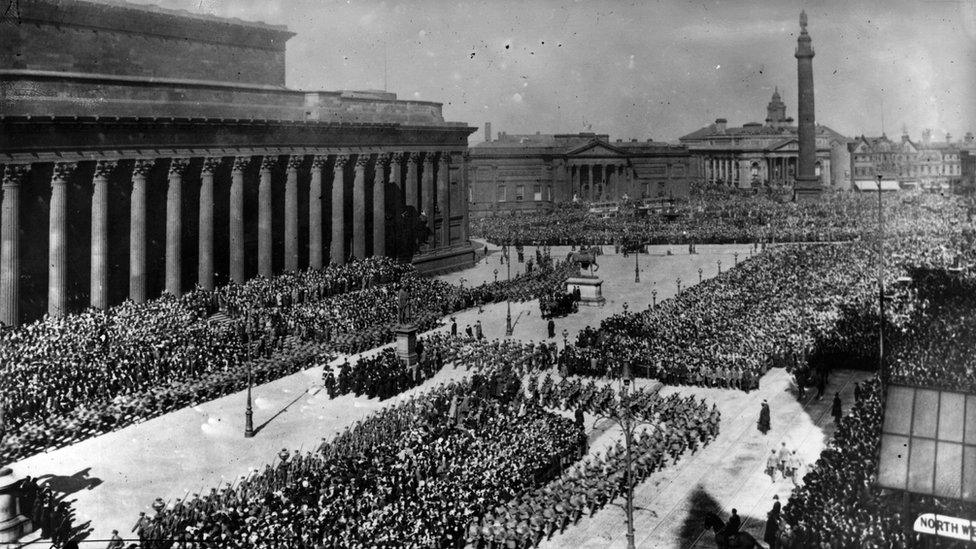
World War One soldiers paraded outside St George's Hall in 1915
The World Heritage Site, external stretches from the city's famous waterfront, through the historic commercial districts, to St George's Hall
The city's bid was centred on its history as a major global port in the 18th and 19th Centuries, when it played a significant role in the growth of the British Empire, external
It was a hub for the mass movement of people, including migrants from Europe to America, and had a key role in the transatlantic slave trade, external
The Albert Dock area features more Grade I-listed buildings than anywhere else in the UK
Liverpool is one of 32 World Heritage Sites in the UK, along with Stonehenge and the Giant's Causeway

Why not follow BBC North West on Facebook, external, Twitter, external and Instagram, external? You can also send story ideas to northwest.newsonline@bbc.co.uk
- Published21 June 2021
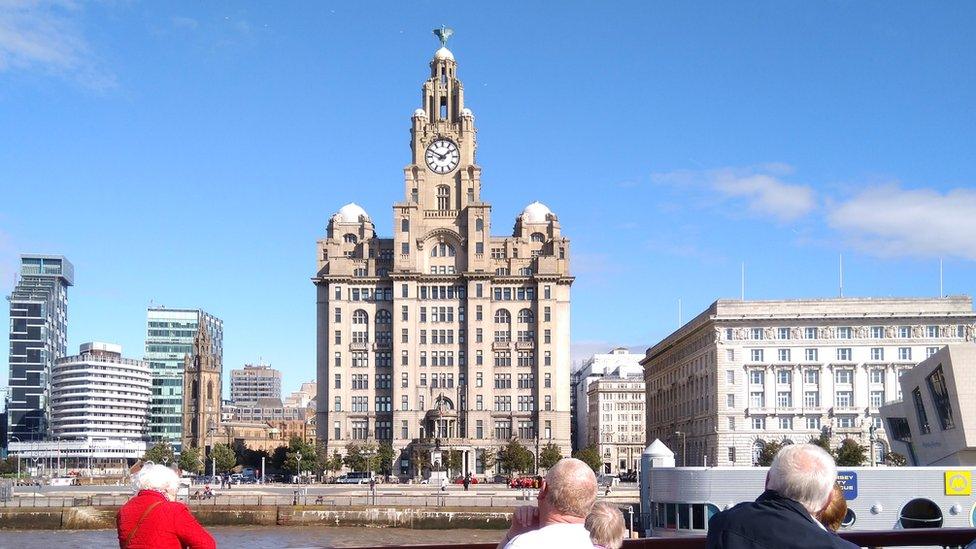
- Published19 June 2021

- Published27 June 2019
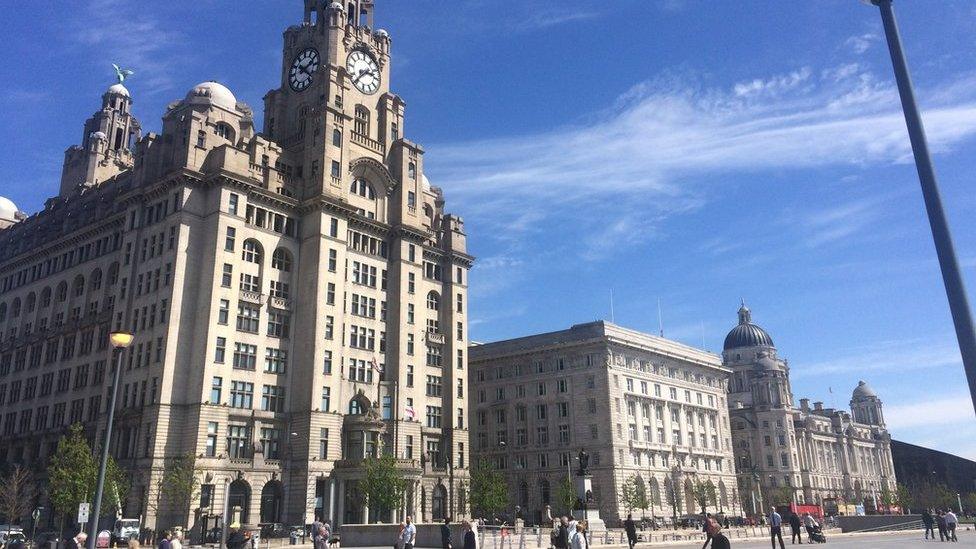
- Published26 March 2021
